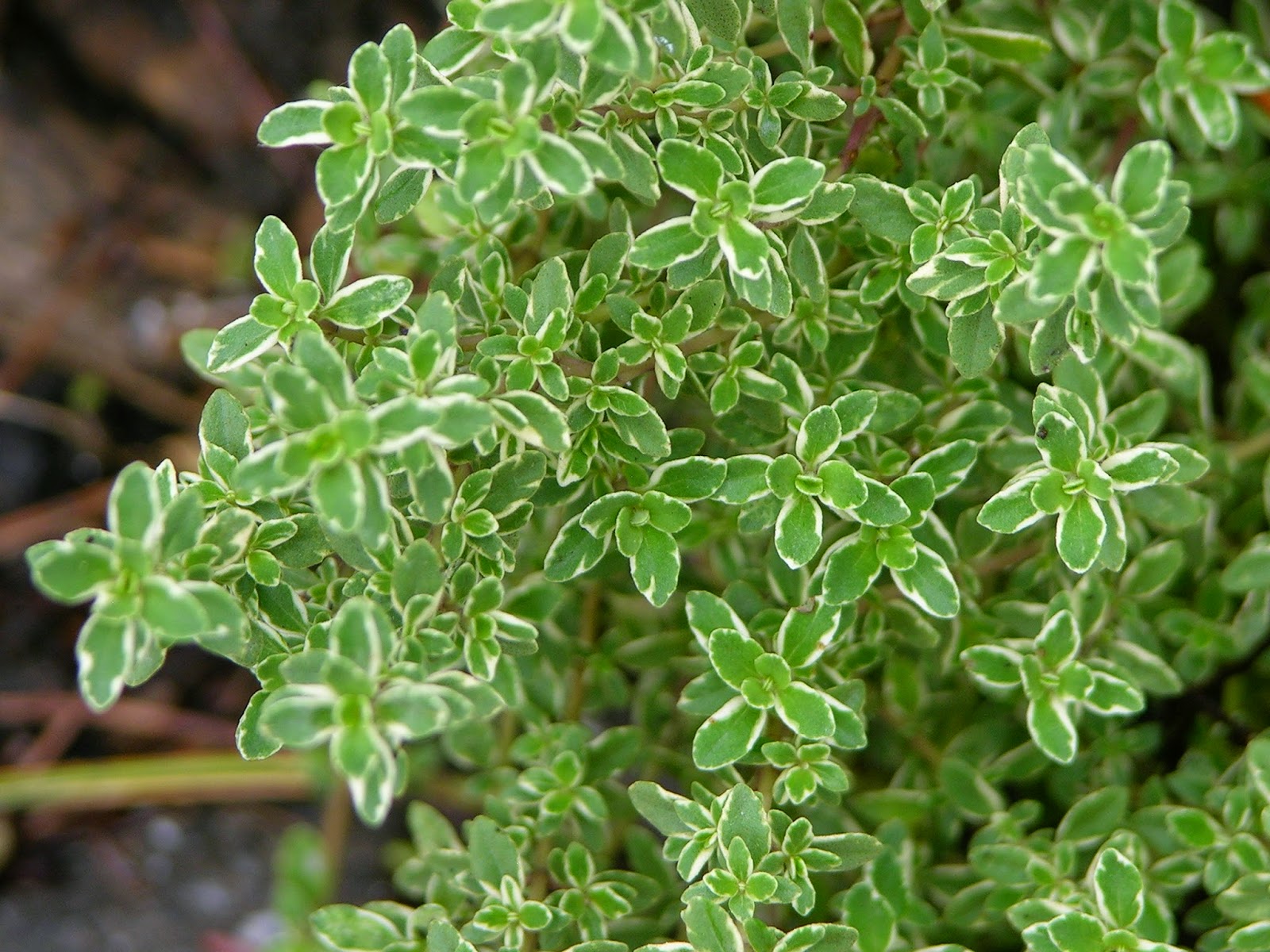When it comes to herbs, few can rival the versatility and aroma of the thyme plant. This aromatic herb, known for its delightful fragrance and distinct taste, has been a staple in kitchens and medicine cabinets for centuries. But thyme is much more than just a culinary delight; it also boasts a plethora of health benefits that make it a true powerhouse of nature’s medicine.
The Origins of Thyme
Thyme, scientifically known as Thymus vulgaris, is a perennial herb native to the Mediterranean region. It belongs to the Lamiaceae family, which includes other well-known herbs like mint, basil, and rosemary. Thyme’s name is derived from the Greek word “thumus,” meaning courage, highlighting its historical association with strength and bravery.
Since ancient times, thyme has been cherished for its aromatic properties and medicinal value. The ancient Egyptians used thyme in their embalming practices, while the Greeks burned it as incense to purify their temples. The Romans, too, held thyme in high regard, often incorporating it into their baths and using it as a culinary herb.
The Culinary Uses of Thyme
Thyme is a staple in many cuisines around the world, adding depth and flavor to a wide array of dishes. Its robust and earthy taste pairs well with various ingredients, making it a versatile herb for both savory and sweet creations.
One of the most popular uses of thyme is in savory dishes such as soups, stews, and roasted meats. Its distinct aroma and warm flavor can elevate the simplest of dishes, transforming them into culinary delights. Additionally, thyme is often used in marinades, rubs, and dressings, providing a burst of freshness and complexity.
Thyme also shines in the realm of desserts, particularly when combined with fruits like strawberries, peaches, and oranges. Its subtle sweetness and herbal undertones bring a unique twist to traditional sweet treats, leaving taste buds begging for more.
Thyme Recipes to Try:
- Roasted Lemon Thyme Chicken: A succulent and flavorful dish that combines the vibrant flavors of lemon and thyme with tender roasted chicken.
- Thyme-infused Strawberries with Balsamic Glaze: A refreshing dessert that marries the sweetness of strawberries with the aromatic touch of thyme and the tangy richness of balsamic glaze.
- Butternut Squash and Thyme Soup: A comforting and creamy soup that showcases the earthy flavors of butternut squash complemented by the warmth of thyme.
The Medicinal Benefits of Thyme
While thyme undoubtedly enhances our culinary experiences, its health benefits are equally impressive. This herb is a treasure trove of medicinal properties, making it a valuable addition to any natural remedy arsenal.
1. Antimicrobial and Antifungal Properties
Thyme contains compounds such as thymol and carvacrol, which exhibit potent antimicrobial and antifungal properties. These properties make thyme an effective remedy for various infections, including respiratory tract infections, oral infections, and even fungal infections.
In a study published in the Journal of Applied Microbiology, researchers found that thyme essential oil exhibited strong antimicrobial activity against various bacterial strains, including antibiotic-resistant ones. This suggests that thyme may serve as a natural alternative to conventional antibiotics.
2. Respiratory Health Support
Thyme has long been used as a natural remedy for respiratory ailments, thanks to its expectorant and antispasmodic properties. It can help alleviate coughs, bronchitis, and congestion by loosening phlegm and soothing the airways.
A study published in the European Respiratory Journal found that thyme extract helped reduce coughing and improve lung function in patients with acute bronchitis. The researchers attributed these benefits to thyme’s ability to relax the smooth muscles in the respiratory tract, promoting easier breathing.
3. Digestive Aid
If you’re struggling with digestive issues, thyme may offer some relief. This herb stimulates the production of digestive enzymes, aiding in the breakdown of food and improving overall digestion.
Thyme also possesses carminative properties, which means it can help reduce gas and bloating. By soothing the gastrointestinal tract, it can alleviate discomfort and promote a healthy digestive system.
4. Anti-Inflammatory Effects
Chronic inflammation is at the root of many diseases, including cardiovascular diseases, arthritis, and even cancer. Thyme contains several compounds, such as rosmarinic acid and luteolin, that exhibit anti-inflammatory effects.
A study published in the Journal of Lipid Research found that thyme extract reduced inflammation in mice by suppressing the production of inflammatory markers. This suggests that thyme may have potential as a natural anti-inflammatory agent.
How to Incorporate Thyme into Your Routine
Now that you’re aware of the incredible benefits thyme has to offer, you may be wondering how to incorporate it into your daily routine. Here are a few simple ways to make the most of this versatile herb:
1. Culinary Delights
Experiment with thyme in your cooking by adding it to your favorite recipes. Whether it’s a sprinkle over roasted vegetables or a garnish for your morning eggs, thyme can elevate the flavors of your dishes while boosting their nutritional value.
2. Infused Oils and Vinegars
Make your own thyme-infused oils and vinegars by steeping fresh thyme sprigs in high-quality olive oil or vinegar. These infusions can be used as dressings, marinades, or even as a finishing touch to your dishes.
3. Herbal Tea
Enjoy the soothing and healing properties of thyme by brewing a cup of thyme tea. Simply steep a few sprigs of fresh thyme in hot water for 5-10 minutes and sweeten with honey if desired.
4. Aromatherapy
Harness the aromatic benefits of thyme through aromatherapy. Add a few drops of thyme essential oil to a diffuser to create a calming and invigorating atmosphere in your home.
FAQs About Thyme
1. Is thyme safe for consumption?
Yes, thyme is generally safe for consumption when used in moderation. However, it’s important to note that some individuals may be allergic to thyme or may experience digestive discomfort if consumed in excessive amounts. It’s always best to consult with a healthcare professional if you have any concerns.
2. Can thyme be used topically?
Absolutely! Thyme essential oil can be diluted and applied topically to the skin to help with various skin conditions. However, it’s essential to perform a patch test and consult with a qualified aromatherapist before using thyme oil on your skin.
3. How should thyme be stored?
To maintain its flavor and potency, thyme should be stored properly. Fresh thyme can be wrapped in a damp paper towel and stored in the refrigerator for up to a week. Alternatively, you can dry thyme by hanging it upside down in a well-ventilated area and store the dried leaves in an airtight container.
4. Can thyme be used during pregnancy?
While thyme is generally considered safe during pregnancy when used in culinary amounts, it’s best to consult with a healthcare professional before using thyme medicinally or in concentrated forms.
5. Are there any potential drug interactions with thyme?
Thyme may interact with certain medications, particularly blood thinners. It’s crucial to consult with a healthcare professional or pharmacist if you’re taking any medications to ensure there are no potential interactions.
A Final Word on Thyme
The thyme plant is undoubtedly a treasure trove of flavor, fragrance, and health benefits. Whether you’re using it to enhance your culinary creations or harness its medicinal properties, thyme is a versatile herb that deserves a place in your kitchen and medicine cabinet.
So, the next time you savor the aroma of a thyme-infused dish or sip on a cup of thyme tea, remember the rich history and remarkable benefits this humble herb has to offer. Embrace the power of thyme and let it inspire you to explore new horizons in flavor and well-being.



